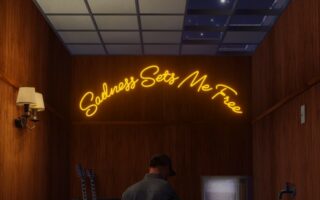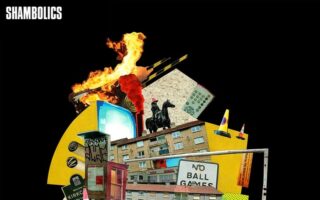
Almost 60% of Americans don’t have a passport, a statistic which Zach Condon – he of Beirut – seems to have spent his life trying to balance, skipping from country to country and in doing so racking up experiences and air miles by the plenty.
A Europhile from an early age, after dropping out of high school in Santa Fe he gravitated towards a job in a movie theatre serving up Italian and French cinema, one which proved to be a step towards ambition fulfillment when, at seventeen, he crossed the Atlantic to see things for himself. This trip, and one two years later, were to sow the seeds of Beirut’s debut album Gulag Orkestar, a quixotic mix of accordion, baroque, plaintive brass and, as many critics reflected, an earthbound take on melancholy way beyond his years.
Condon’s relationship from then with both his music and himself has occasionally fractured but in the three-years-plus since the release of last album No, No, No, the wanderer has relocated from Brooklyn to Berlin, a city which peculiarly he feels connected to in a similar way to his New Mexican hometown.
In keeping with the multiple passport stamp life, Gallipoli is named after the Turkish city closest to the recording studio of its birth. In song it’s rendered into an oddly familiar and comforting blend of Mariachi trumpet and the hallmark, ancient Farfisa organ, a muse which melts deliciously into the song’s weary sounding bones.
Depending on your perspective that and the far more cheerful than it sounds opener When I Die are either further examples of the harmless but slight gap year indie of Beirut’s past, or a bravely alternative take on bringing ethno-organic music to a largely closed off public. Those with the latter view will find considerable solace here, particularly in I Giardini’s gentle backroom-beats and the prettily epic Gauze For Zah, which builds from two parts, the first a thrusting choral affirmation, the second a sun-kissed burst of ambience flowing down from the dirt roads to the sea.
This said, there is as always a tension and vulnerability to Condon’s work, as if being constantly on the move is as much a way of leaving each new set of struggles behind without resolution. It’s this aspect though that remains the easiest to embrace, an undertow to We Never Lived Here’s symphonic grace and one that sweetens Landslide’s glitzy, 60’s pop psychedelia, where the disaster of the title could be a reference to either a natural phenomenon or a stymied emotional switchback.
It would equally be the boldest of acts for many artists to make room for not one but three instrumentals (On Mainau Island, Corfu, Fin), but Gallipoli is a sum of its parts, and words have only ever been an optional part of Zach Condon’s map of composition, omitted by choice where some would feel obligated unnecessarily to add prose to texture.
Whatever the demands of critical expectation, to an extent it is true that despite how far he’s travelled there are still elements of Beirut’s work which live in a risk-free comfort zone, wherever its creator is residing at the time.
As a result Gallipoli, for all its multi-cultural signatures, still feels more like a waypoint than a final destination.




